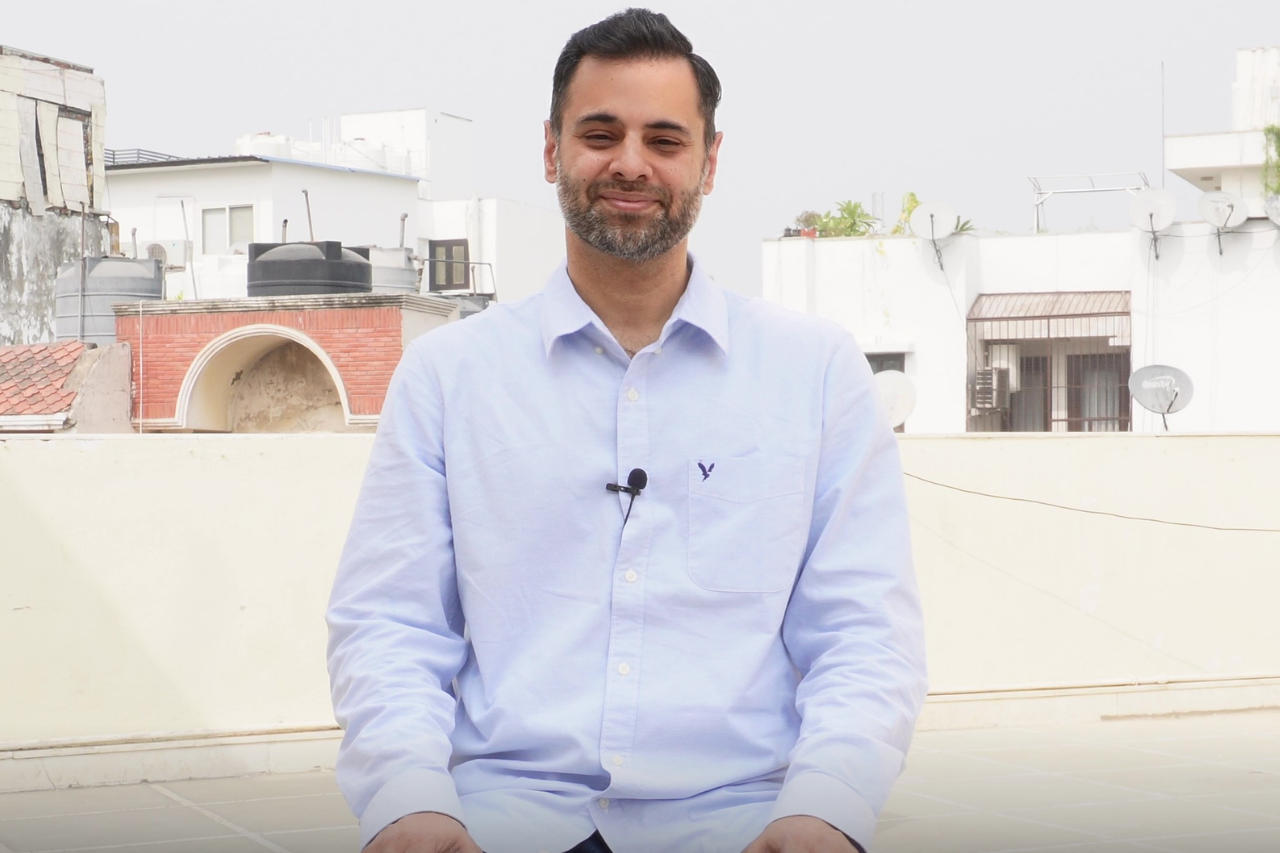Latest book release: Bitten By The Energy Serpent – A New Perspective on Kundalini Awakening
Q: Can you describe your Kundalini experiences?
Ans: When I began my spiritual seeking, I knew nothing about Kundalini. Things started happening, but I cannot say for sure that it was the result of any particular practice.
While in meditation, I experienced a cool sensation in the throat. Sometimes, I used to wake up in the middle of the night experiencing an intense swirling sensation in my stomach (around the belly button area).
There were times when I felt strong vibrations in my core. It was so intense that I thought I would be thrown off balance.
Other times, I had a pulsating feeling on my forehead that used to last long. Yet, there were other times when I would experience raptures. So there were different experiences at different stages. But at one point, all experiences ceased, and all left was an empty silence or awareness.
There was no individual having an experience in that silence, but the stillness or silence was all there was. At that moment, there was no body consciousness or thoughts, only an impersonal awareness of “being.” I call it a non-experience because there was no one to experience anything.
People usually get so caught up in experiences that they forget that the absence of the experiencing entity is the final liberation.
All experiences point to the awareness from which everything manifests in phenomenality. In fact, overidentification with experiences can strengthen the ego or sense of personal identification.
When the ego takes ownership of the kundalini experience, it tends to feel special, “I am the one who has these experiences. The divine grace is on me.” It can give rise to a spiritual ego, which is one of its worst forms.
In one of the ashrams in India, a spiritual seeker relentlessly pursued the ultimate truth or liberation or attainment of God. He meditated for many hours every day. The higher priests were quite impressed by his determination and abilities.
One day, while in meditation, he abruptly opened his eyes and claimed that he could hear the Naad or the divine unstruck sound of the universe. Therefore, he ran out of his room and told everyone in the ashram that he could listen to the sound.
Within a week, people started following him, and he began giving sermons. One morning, as people were waiting for his sermon, he didn’t come out of his room.
After an hour, he came out with a great disappointment on his face. When people inquired, he said, “It’s gone! I can’t hear it anymore. The divine grace is no more on me. It must be some bad karma in a past life.” He was so disappointed that he left the ashram.
When the ashram president heard about this, he inquired into the incident. And it was subsequently revealed that the guy who left the ashram had his room close to a storage room where the fridge’s compressor had gone bad.
The compressor had been making a humming noise for about a month. And it was fixed the day before that guy left the ashram.
Q: But many people claim that they have experienced states of high bliss while practicing Yoga and meditation. Don’t you think their experiences hold relevance?
Ans: I’m not undermining anyone’s spiritual experiences. But every experience or blissful state comes to an end. A state experienced in the mind is always fleeting.
You may feel blissful sitting with your eyes closed in meditation or mantra chanting, but the moment you get back into the routine, all of life’s troubles come back. Our minds can show us the highest heaven or the lowest hell. Every experience is the pointer to the absolute.
The ego thinking that the experience, in and of itself, is the final attainment is a classic mistake. One feels satisfied until the experience is there, but when life situations change, and one cannot relive the same experience, frustration arises in the mind.
In a Zen monastery, a monk saw Buddha’s image in meditation. He exclaimed, “Master, I see the Buddha. What should I do?” And the Master replied, “Good! Now let it go and continue your practice.”
The ego creates images and tries to cling to them. In the above case, the image was, “I’m the one seeing the Buddha.” Do you see the trap? This clinging creates suffering through tension.
Q: So can we say that your awakening was the result of your meditation practice?
Ans: I can’t say that it happened because of meditation alone. There were other factors, some beyond my understanding. My spiritual journey began after my father’s death.
The most pressing question then was, what happens to the consciousness after death? What is death? What is life? What is our purpose? It led to a series of events. I started reading scriptures to find the answers, but nothing satisfied my curiosity.
The understanding came when I gave up the resistance. I followed the Shakti path up to a point where I felt stuck. The energy had become stagnant, and the ill effects had started manifesting as anxiety, restlessness, irritation, and depression.
I desperately needed answers, and I did not have a living guru. I approached a lot of Kundalini masters, but they never had answers that could satisfy me. It’s not that those masters weren’t knowledgable, but blinded by the ego, I was unconsciously putting up a lot of resistance.
Q: What do you mean when you say “I was putting up resistance”?
Ans: You see when we tread a spiritual path, we carry preconceived notions about spiritual awakening. We try to consciously or subconsciously relate every spiritual experience with our beliefs. Sometimes, people distort a spiritual experience to conform to their pre-existing beliefs.
I have spoken to many practitioners about their experiences when they saw Buddha, Jesus, or Krishna while meditating. I’m not saying they are delusional. Such visions are common and indicate progress in the spiritual path, but every experience happens against a changeless background that cannot be visualized.
It gives a glimpse into the nature of the absolute. It’s an experience of nothingness, an empty awareness in which all experiences happen.
Once you realize the bliss of that emptiness, no other experience will satisfy you. You know that you’re not separate from it, and the individual “I-existence” that we experience is an illusion created by Shakti. That at that point, Shakti and Shiva become one.
It is the union of Kundalini with the primordial cosmic energy. Therefore, your idea of yourself as an individual living a separate existence dissolves, and you become Shiva.
There was a lot of resistance in my case. I had created an image of spiritual awakening that was not in conformity with what I was experiencing at that time.
There was a great dissonance because one thought was that I was experiencing the Kundalini while the experiencer was dissolving as the energy ascended. This limited entity “me” slowly and steadily observed its own destruction.
And to be honest, my ego didn’t like that. Since the beginning, I believed that it’s an individual who gets liberated through Kundalini awakening. But what happened, in reality, was that the Individual “I-sense” began eroding layer by layer. It is psychologically painful.
Q: Are you saying that the Kundalini awakening destroyed your ego?
Ans: No! Let’s understand this. The ego or the “I-sense” cannot be destroyed till the body exists. It forms the basis of worldly interaction.
Ramesh Balsekar, the great Advaita teacher, said that ego is not merely an identification with name and form. Even the great sages like a Ramana Maharishi responded when called by their name.
The ego facilitates inter-human interaction. I would say that without the ego, the body is dead. It provides for self-sustenance and self-preservation mechanisms.
For example, when you’re hungry, you eat, when tired, you sleep, when you feel pain in some part of the body, you know something needs addressing, and so on.
What I’m trying to say is that you cannot function without the ego. This ego, in and of itself, is not the problem. The problem is with the identification of the ego with the thinking mind. Such a mind is identified with needs and wants. It lives for momentary fulfillment.
When a desire is fulfilled, the mind immediately craves another. Therefore it keeps the ego running unconsciously from one object of pleasure to another. When it gets the object of its desire, it creates pride, and when it fails, it creates anger, envy, guilt, aversion, and resentment.
Therefore, the individual is trapped in a never-ending loop of happiness and unhappiness, unhappiness for the most part. This mind lives in a continuous state of comparison.

